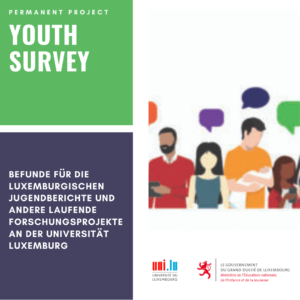PURPOSE: High level of sedentary behavior (SB) may cause a number of health complaints (nHC) and lead to reduced self-rated health (SRH) in young people. The purpose of this study was to determine the relationship between SB, the magnitude of nHC, SRH, body mass index (BMI), and whether the amount of physical activity (PA) moderates this relationship.
METHODS: The data was obtained from Youth Survey Luxembourg 2019 (N = 2802). The population characteristics include sociodemographic data such as age, gender, and socio-economics status (SES) (0 = low to 18 = high). The severity of nHC was the sum score of headaches, stomach aches, back aches, depression, irritableness, nervousness, dizziness, and difficulty falling asleep (0 = low to 32 = high). BMI was calculated by dividing body weight to the square of body height (kg/m2). SRH was measured on a 5-point scale (1 = very good to 5 = very bad). PA and SB were generated from factor analyses of the questionnaire items. SB is separated between leisure and gaming. Multiple regression analysis, adjusted for age, gender, and SES, was used to determine the relationships between SB, nHC, BMI, and SRH, and the moderating effect of PA.
RESULTS: Out of the participants, 54% were female and 46% were male with the mean age of 22 ± 4 years (16-29 years). The mean SES was 9.3 ± 2.2 (1-13), BMI was 23 ± 4 kg/m2 (14-47 kg/m2), severity of the nHC was 9 ± 6 (0-32), and SRH was 1.8 ± 0.6 (1-5). The multiple regression analysis shows that high SB through leisure is associated with more severe nHC (unstandardized coefficient b = .49, p < .01). However, PA can decrease nHC (b = .39, p < .01) for participants with high leisure SB. No association has been found between SRH, BMI, and leisure SB. Furthermore, an increase in SB through gaming is associated with higher BMI (b = .35, p < .01) and worse SRH (b = .09, p < .00). A relationship between the severity of nHC and gaming is not found. In all cases, a higher PA shows a significantly better nHC, SRH, and BMI. CONCLUSIONS: The results show that PA has a positive moderating effect of the relationship on leisure SB and nHC in young people in Luxembourg. Increased SB causes higher nHC, worse SRH, and higher BMI and young people who do more PA have lower severity in nHC, and better BMI and SRH. Therefore, it is important for young people to reduce SB and implement a sufficient amount of PA to improve overall health.



